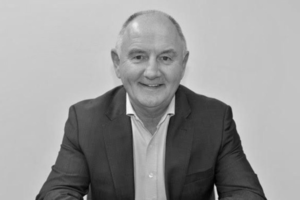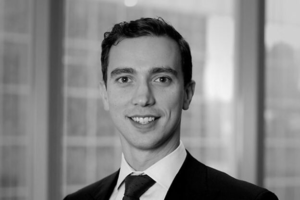What's ahead for insurance products?BY GAVIN TEICHNER | FRIDAY, 19 MAR 2021 11:33AMTo ensure the life insurance sector is sustainable for all Australians, it is essential that we bring progressive thinking and have a long-term sustainable vision for the future. Upgrade your subscription to access this article
Join the growing community of financial advisers
with unlimited access to our latest news, research and analysis of the industry.
Become a premium subscriber today. |
Latest News
Findex partners with brokerage firm to deliver 'best-in-class' service
|Findex is entering a joint venture with Ortus Financial to bolster its expertise and breadth of its service.
ASIC funding levy to charge advisers $46.2m
The financial advice sector can expect to contribute $46.2 million to ASIC's industry funding levy for the 2025 financial year, new estimates show.
ASIC releases new relief for reportable situations regime
ASIC has provided AFSLs new reliefs to help them manage the reportable situations regime, which includes extending the length of investigations reportable from 30 days to 60 days.
TA Associates invests in Viridian Financial Group
TA Associates announced it will make an undisclosed investment in Viridian Financial Group to help the latter accelerate its next phase of growth.
Further Reading
Cover Story

Moving mountains
MAGDELINE JACOVIDES
FOUNDER & FINANCIAL PLANNER
MAZI WEALTH
FOUNDER & FINANCIAL PLANNER
MAZI WEALTH
On top of running a successful practice, Mazi Wealth founder Deline Jacovides is a fierce advocate for closing the superannuation gender gap and has built a highly popular social media presence that takes financial literacy to the next level. She tells Karren Vergara where her passion comes from and how she integrates it all with family life.
























The industry was brow-beaten 25 - 30 years' ago into becoming so-called 'advice-driven', rather than sales-driven (though why would anyone have bought a policy without 'being advised'?). It then had excellent products, excellent underwriting, well-experienced staff and effective distribution by an army of agents. Why the change (aka deterioration) to its present parlours state? Because a smaller army of unit trust peddlers who called themselves 'financial advisers' (they even founded the FPA!) whose 'advice' ran aground in the 1987 crash, precipitated a wave of consumer protection measures, which has ultimately led to the draconian-powered ASIC that has smited product makers, distributors and particularly financial advisers. And - in direct consequence, and culpably - the general public who are now grossly under-insured.
ASIC, too, has foundered on the treacherous rocks of bureaucracy.
There used to be a product called "Whole of life" (WOL) and its shorter term brother "Endowment" insurance , these policies were the cornerstone of (then) mutual societies and others, they fell out of fashion with the emergence of the "Unbundled" insurance offering, as many of the disrupters would say "Buy Term and Invest the rest" . well how did that work out? ... Not well IMHO. WOL policies provided a number of advantages (and a few disadvantages) to both client and insurer alike, there was the long term fixed pricing while the death / maturity benefit slowly over time increased, one could add temporary "Rider" benefits , usually in small bundles of say $5k both term and TPD. as we advisers / agents were wont to say "Temporary insurance is a solution for temporary problems, Permanent Insurance is a solution for Permanent problems" anther advantage is that the insurer created a "long term" relationship with the client , that didn't stop clients from having more than one WOL policy with more than one insurer.
A life insurer needs to be profitable to be of any use to their policy holders, WOL / Endowment was a perfect vehicle for that. the spin off is that the client who went the distance benefited from a pay-out at the end if they didn't pass away in the interim. in my nearly 40 years I have seen policy terms fall from an average of 7 years in force to the now pathetic lows of barely 2 years . One can't help but see some causal link with the demise of WIOL insurance. Other benefits of WOL was the loan values and in extreme circumstances , surrender values, this wasn't a good way to go as surrender values reflected the need to go long term and not short.
As an "Old Riskie" I lament the loss of these dinosaurs because I feel they still had / have a place in long term financial planning advice.
Graham, this Graham could just as easily written your words verbatim. Well said. I miss them, especially for "estate planning" purposes, which is what every life insurance policy is for.
I now have clients in their seventies and eighties, those with permanent policies and those with temporary. I know the ones who have the broadest smiles of contentment.
i find it intriguing that the very people who have run our industry onto the rocks ( if this is the case) by competing for points from the research houses and getting away from the core of what we deliver, are now saying we need to be progressive
problems in our industry are and always have been in the lap of the insurers
advisers don't design remuneration, product, underwriting or clams management yet continually it is us who carry the can - these so called positive changes are going to open a can of worms with existing contracts - lets watch the insurers price existing contracts out of the clients reach and in to the hands of the new progressive and sustainable contracts - been around too long and seen the cynical change of position by insurers too many times